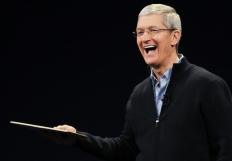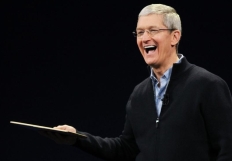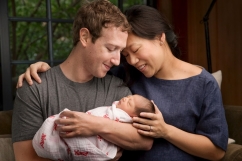On 1st December, Facebook founder Mark Zuckerberg took to the world-conquering social media platform he created to announce not one, but two births. Zuckerberg and his wife Priscilla Chan presented their newborn daughter Max to the world at the same time as announcing a new charity which will instantly become one of the largest in the world. The Chan-Zuckerberg Initiative (CZI) will have the mission of 'advancing human potential and promoting equality', and will be funded to the tune of an estimated $45 billion over the course of the couple's lifetime. In practice, that means that Zuckerberg will be giving away an estimated 99 per cent of his shares in the company he created; if he follows through on the promise he'll be the second biggest philanthropist in human history (after Andrew Carnegie).
It's a good news story on an almost unrivalled scale. One of the biggest symbols of modern wealth and capitalism deciding to give almost all of his money away. Overnight, Zuckerberg's image has been transformed – from Poster Boy of the tech revolution's super-rich (and the guy who made millions of businessmen worldwide feel terribly inadequate), to the world's most generous man.
For Christians however, the story might feel a little problematic. Zuckerberg is a confirmed atheist; raised in a Jewish family, he turned his back on faith at 13 shortly after his Bar Mitzvah, and now even lists the fact on his personal Facebook page. The idea of someone who has completely rejected God behaving like this doesn't sit too neatly with the classic evangelical worldview that God is using His people to remake and recreate a better world. In fact, Zuckerberg's announcement could challenge Christians in all sorts of ways...
1. Christians don't have a monopoly on doing good
First, the establishment of the CZI should radically challenge any notion that Christians are the only people who can perform great acts of compassion, kindness and generosity. It's certainly true that many of history's great humanitarians – William Wilberforce, Mother Teresa and Martin Luther King to name but three – have been Christians, but it's a pretty thin argument to suggest that civilisation hasn't also benefitted from plenty of incredible people who didn't share their faith. Gandhi, Schindler, and even Carnegie – the greatest philanthropist ever if you adjust for inflation – weren't followers of Jesus. Mark Zuckerberg isn't a Christian, but there's little doubt that the money he's now releasing will accomplish amazing things – much of it among the world's poorest people. The blind will see; mothers won't have to bury their children, and whoever's responsible for that, we should thank God for them.
2. God uses atheists
Here's a slightly trickier thought, for the faithful and the faithless alike: if Zuckerberg's fortune is ploughed into projects which fight disease, combat poverty, build communities and restore hope all around the world, then he is profoundly involving himself in the same mission that we might term the Kingdom of God. So for those of us who hold to a faith in a God who is making all things new (Revelation 21:5); who is working in all things for good of those who love him (Romans 8:28), that means God is using Mark Zuckerberg to establish his Kingdom on earth. God, who 'loves a cheerful giver' (2 Corinthians 9:7) is presumably delighted with the gesture, but it shouldn't be a huge stretch to suggest that he even inspired it. If you're an atheist of course, that's an even more irritating Christian viewpoint than usual.
3. A challenge to radical generosity
Finally, Zuckerberg and Chan's extraordinary act of philanthropy should present a huge personal challenge to us all. Of course, the couple will remain wealthy, but they've chosen not to use their money to pursue power, security and more money. The establishment of the CZI is expected to inspire a wave of mega giving among the rich; could it also inspire regular people like you and I to be a little more generous too? So many of us have managed to use the '10 per cent rule' to justify a kind of religiously limited generosity; Zuckerberg's eye-popping 99 per cent figure is more than a small challenge to that.
In Matthew's Gospel, Jesus meet a man we now call 'the rich young ruler.'The man asks Jesus what he needs to do to enter the Kingdom of Heaven; Jesus replies that he just has to sell all he has and give to the poor. Then he'll have treasure in heaven. The man goes away sad 'because he had great wealth' (Matthew 19:22); he seems unable to do what Mark Zuckerberg seemingly can. An atheist can't buy his way into heaven any more than a Christian can, but it seems to me that whether they know it or not, Zuckerberg and Chan are choosing to commit a divine act.
Martin Saunders is a Contributing Editor for Christian Today and the Deputy CEO of Youthscape. You can follow him on Twitter: @martinsaunders
















